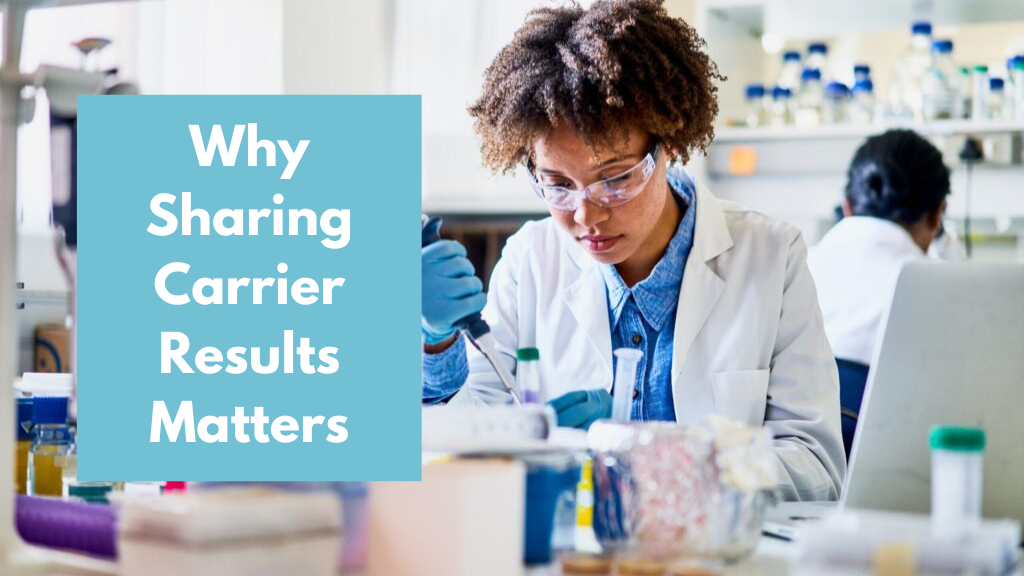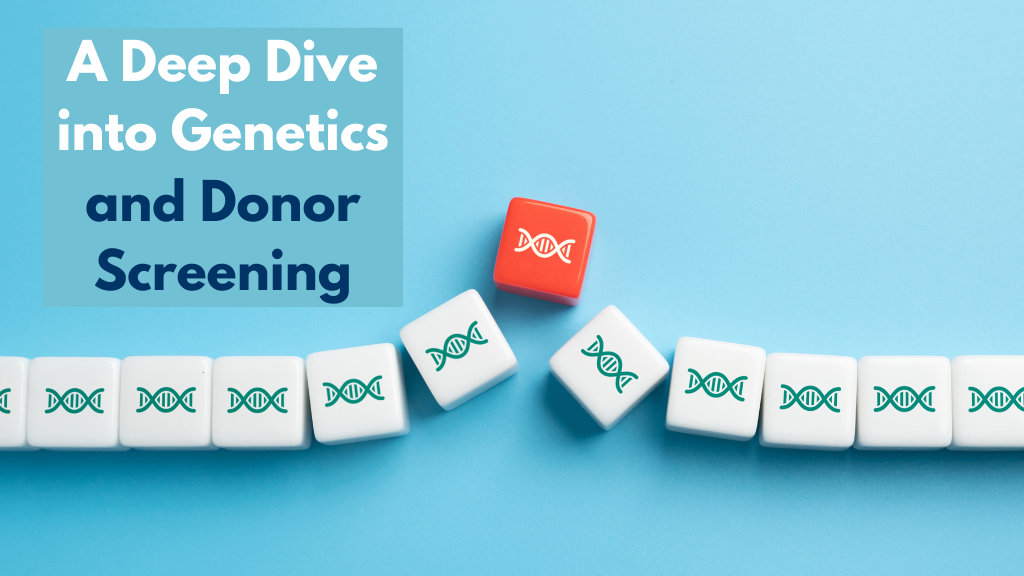Why Sharing Your Carrier Screen Results Matters

When choosing a sperm donor, you want the best possible match for your family’s future health. That’s where genetic carrier screening comes in. While it is best to use the genetic counselor from your clinic for suitability matches, our genetic team at Fairfax Cryobank can perform this service if needed. To do so, and to order special testing on a sperm donor, we require a copy of the genetic carrier screening results of the egg source.
Why?
The short answer: Genetics is complicated.
The long answer? Let’s dive in.
1. Ensuring the Right Match and Testing
Did you know humans have around 20,000 genes? Each one plays a unique role in our development and health. Some gene names sound like a cryptic bingo game (COL4A4, ABCB4, WNT10A—Bingo!), and even a small typo could lead to comparing or testing the wrong gene.
By sharing the egg source’s carrier screen results, we can confirm that:
✔ A genetically suitable sperm donor is selected.
✔ The right follow-up genetic tests are ordered.
???? Example:
Changes in the ABCC6 gene cause pseudoxanthoma elasticum (PXE), while changes in ABCC9 cause Cantú syndrome. A simple mix-up could lead to comparing or testing for the wrong condition—so accuracy is crucial.
2. Making Sure the Test Was Performed at a Diagnostic Laboratory
Not all genetic tests are created equal! The FDA advises against using direct-to-consumer (DTC) genetic tests for medical decisions because they don’t analyze all relevant genes and variants.
???? Example:
Some popular at-home DNA tests check for just 29 variants in the CFTR gene, which is linked to cystic fibrosis. But over 2,000 variants are associated with CFTR-related conditions! That means someone who gets a “negative” result from a DTC test could still have a higher risk to be a carrier than had they pursued testing at a clinical diagnostic lab that assesses for more variants.
3. Confirming That Results Are Actionable
At Fairfax Cryobank, we screen sperm donors only for severe, childhood-onset, autosomal recessive conditions. Having results in hand allows us to confirm whether a genetic variant is associated with this type of condition.
4. Identifying Additional Genetic Risks
Carrier screening panels aren’t all the same. Different labs test for different genes, and DTC tests typically screen for fewer medically relevant variants than diagnostic laboratories.
Since sperm donor testing is a time-consuming and expensive process, we want to make sure we evaluate your full genetic risk before you move forward.

The Bottom Line
By providing carrier screen results for the egg source, you’re ensuring the most accurate genetic match, reducing the risk of unnecessary testing, and helping to safeguard your family’s health.
Have questions about carrier screening? Our genetic team is here to help!







